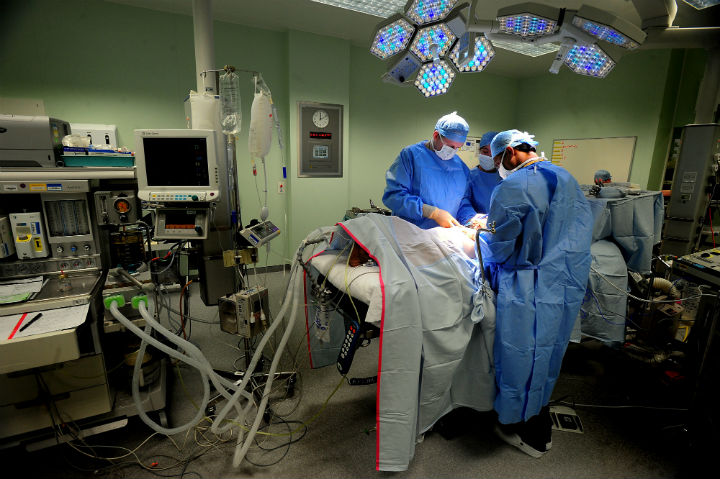VANCOUVER – A Canadian English-speaking medical resident planning to spend the first weeks of this year taking a course in British Columbia was unable to attend because of a language requirement he believes he should be exempt from.

Dr. Rory Silverberg, who finished his four years of course studies at Saba University School of Medicine on the Netherlands Antilles island of Saba in 2012, is currently completing his residency in internal medicine in Thunder Bay through the Northern Ontario School of Medicine.
Like a number of other Canadian doctors, he turned to the island’s privately-owned Saba University School of Medicine as spots in Canadian schools grow more and more competitive.
He planned to come to British Columbia to start one of his required four-week electives on Monday.
But he didn’t meet one specific requirement in order to register with the College of Physicians and Surgeons of British Columbia (CPSBC): While he was born and raised in New Brunswick (English is his first language), and completed his pre-med studies at the English-language McGill University, his medical degree was from an English-language school in a territory where English is not the first language.
CPSBC requires international medical graduates to take an English-language proficiency (ELP) test, even if they are born-and-raised, English-speaking Canadians.
After getting everything in order to come to B.C., Silverberg said he got a call from CPSBC on Dec. 27, asking why he selected “not applicable” when he filled out the section relating to the proficiency test.
The CPSBC board reviews its requirements from international medical graduates annually, which it bases on guidelines from the Federation of Medical Regulatory Authorities of Canada (FMRAC).

Get weekly health news
But as of this year, the college still requires candidates to meet a minimum grade on an English language proficiency (ELP) test, either TOEFL or IELTS.
According to the TOEFL website, the earliest possible date anywhere in Canada in 2014 was Jan. 11 — far too late for Silverberg to get results.
“More importantly, why would I write that exam,” Silverberg said. “It doesn’t make any sense.”
“I’d rather put up a bit of a fight and get people thinking about why we have these policies,” he said.
CPSBC says standards are fair
Dr. Jack Burak, the deputy registrar with CPSBC, said it doesn’t matter whether you’re Canadian or not: All international medical graduates have to follow the same set of guidelines.
He said it’s a fair standard that’s applied to everyone so as to not discriminate. He added CPSBC is following a “pan-Canadian” standard and has “chosen to exercise an abundance of caution.”
“We have taken the position that through fairness and human rights considerations, all international graduates must be treated equally and fairly,” Burak said in a phone interview. “We apply one standard in an open, fair, transparent, consistent and uniform fashion for all… If we’re going to exempt some international medical graduates from English-language proficiency testing and require others to do so, then that raises issues.”
“Our mandate is to ensure public safety and to act in the public interest by ensuring that the physicians that we register and licence for any area, be it training or licence for independent practice, have sufficient English language communication skills, Burak said. “All patients have the right to be understood by their physician and to understand what their physician is telling them. I think this is absolutely critical in the medical model.”
Aside from the ELP requirement, international medical graduates must also have gone to a school where the primary language of instruction is in English and have completed practical work primarily in English. Silverberg met those requirements.
Burak said all three components have to be met and applicants can’t “cherry pick” from the requirements, adding it should not be difficult for someone such as Silverberg to pass an ELP test.
Changing English-language requirements
The ELP policy (or ones similar to it) do exist in other provinces, but not across the board.
In Ontario, where Silverberg is a medical resident, you must prove that you have a “reasonable fluency in English or French.”
And the College of Physicians and Surgeons of Nova Scotia amended its ELP requirement at the start of this year to allow international medical graduates of Saba University to be exempt from taking the proficiency test.
Burak said he suspects the college would eventually change its policy and approve registration or licencing for graduates from Saba University without taking an ELP test. But, he said he couldn’t speculate when or how that might happen.
For now, Silverberg said he was lucky to be in a smaller program at the Northern Ontario School of Medicine and was able to switch around some of his elective courses so he won’t fall short of his requirements.




Comments